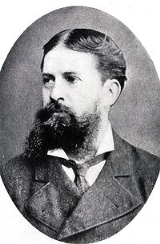
Pragmatism
Overview
Instrumentalism
In the philosophy of science, instrumentalism is the view that a scientific theory is a useful instrument in understanding the world. A concept or theory should be evaluated by how effectively it explains and predicts phenomena, as opposed to how accurately it describes objective...
, radical empiricism
Radical empiricism
Radical empiricism is a pragmatist doctrine put forth by William James. It asserts that experience includes both particulars and relations between those particulars, and that therefore both deserve a place in our explanations...
, verificationism, conceptual relativity
Conceptualism
Conceptualism is a philosophical theory that explains universality of particulars as conceptualized frameworks situated within the thinking mind. Intermediate between Nominalism and Realism, the conceptualist view approaches the metaphysical concept of universals from a perspective that denies...
, a denial of the fact-value distinction
Fact-value distinction
The fact-value distinction is a concept used to distinguish between arguments which can be claimed through reason alone, and those where rationality is limited to describing a collective opinion. In another formulation, it is the distinction between what is and what ought to be...
, a high regard for science, and fallibilism
Fallibilism
Fallibilism is the philosophical principle that human beings could be wrong about their beliefs, expectations, or their understanding of the world...
.
Charles Sanders Peirce (and his pragmatic maxim
Pragmatic maxim
The pragmatic maxim, also known as the maxim of pragmatism or the maxim of pragmaticism, is a maxim of logic formulated by Charles Sanders Peirce...
) deserves most of the credit for pragmatism, along with later twentieth century contributors William James
William James
William James was a pioneering American psychologist and philosopher who was trained as a physician. He wrote influential books on the young science of psychology, educational psychology, psychology of religious experience and mysticism, and on the philosophy of pragmatism...
, John Dewey
John Dewey
John Dewey was an American philosopher, psychologist and educational reformer whose ideas have been influential in education and social reform. Dewey was an important early developer of the philosophy of pragmatism and one of the founders of functional psychology...
and George Santayana
George Santayana
George Santayana was a philosopher, essayist, poet, and novelist. A lifelong Spanish citizen, Santayana was raised and educated in the United States and identified himself as an American. He wrote in English and is generally considered an American man of letters...
.
Pragmatism enjoyed renewed attention after W. V. O. Quine
Willard Van Orman Quine
Willard Van Orman Quine was an American philosopher and logician in the analytic tradition...
and Wilfrid Sellars
Wilfrid Sellars
Wilfrid Stalker Sellars was an American philosopher. His father was the Canadian-American philosopher Roy Wood Sellars, a leading American philosophical naturalist in the first half of the twentieth-century...
used a revised pragmatism to criticize logical positivism
Logical positivism
Logical positivism is a philosophy that combines empiricism—the idea that observational evidence is indispensable for knowledge—with a version of rationalism incorporating mathematical and logico-linguistic constructs and deductions of epistemology.It may be considered as a type of analytic...
in the 1960s.
Unanswered Questions
Discussions

